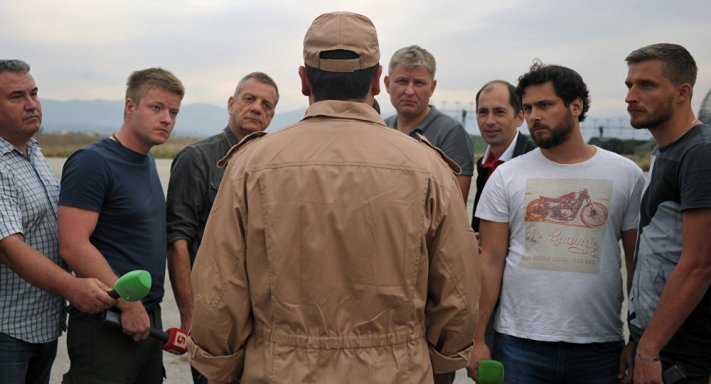Rescued co-pilot from the downed Russian Su-24 jet said there were no visual or radio warnings issued by Turkey.
"There were no warnings. Not via the radio, not visually. There was no contact whatsoever. That's why we were keeping our combat course as usual. You have to understand what the cruising speed of a bomber is compared to an F-16. If they wanted to warn us, they could have shown themselves by heading on a parallel course. But there was nothing. And the rocket hit our tail completely unexpectedly. We didn't even see it in time to take evasive maneuvers."
Rescued co-pilot Captain Konstantin Murahtin said there was no violation of the Turkish airspace.
He also said the crew of the downed Russian bomber jet knew the area of the operation "like the back of their hands."
"Of course, having carried out numerous flights there we knew the region like the backs of our hands. We were conducting our sorties and returning back to base following the predetermined route. I’m a navigator, I know every altitude there. I can guide the aircraft there blindfolded," co-pilot said.
The co-pilot added that he wants to continue serving in the Russian aviation group in Syria.
"I can't wait until I get the all-clear from the medics, so that I can step back into the ranks. I'm going to ask our command to keep me on this base — I have a debt to repay, for my commander."
On Tuesday, a Russian Su-24 bomber jet crashed in Syria. Russian President Vladimir Putin said that the plane was downed by an air-to-air missile launched by a Turkish F-16 jet over Syrian territory, falling 4 kilometers (2.5 miles) from the Turkish border.
The crew of the plane ejected and one pilot was killed by fire from the ground, according to the Russian General Staff. The co-pilot survived.
A pilot killed by fire from the ground after ejecting from a Russian Su-24 jet downed by Turkey in Syria was posthumously awarded with a Gold Star medal, Russia’s highest honorary title.






No comments:
Post a Comment